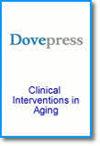脊柱手术后老年患者体弱和生活质量的影响因素
IF 3.7
3区 医学
引用次数: 0
摘要
背景:研究脊柱手术后老年患者体弱和生活质量的相关因素:研究脊柱手术后老年患者体弱和生活质量的相关因素:手术前 1 天(DAY-0)通过焦虑筛查量表(GAD-7)、抑郁筛查量表(PHQ-9)、虚弱筛查量表(FRAIL)和欧洲五维健康量表(EQ-5D-5L)对所有患者的焦虑、抑郁、虚弱和生活质量进行评估。术后第 1 天(POD-1)、第 3 天(POD-3)和第 30 天(POD-30),采用数字评分量表(NRS)评估患者活动时的疼痛。在术后第 30 天(POD-30)和第 90 天(POD-90),使用 FRAIL 量表和 EQ-5D-5L 评估患者的虚弱程度和生活质量:两组患者的年龄、体重指数(BMI)、术前血清白蛋白水平(ALB)和 POD-1 的 NRS 评分均有明显差异(P< 0.05)。年龄和 PHQ-9 评分与 EQ-5D-5L 评分呈正相关(P< 0.05,r Age=0.245,rPHQ-9=0.217),术前 ALB 水平与 EQ-5D-5L 评分呈负相关(P< 0.05,r ALB=- 0.274):结论:年龄越大、体重指数越大、术后第一天的 NRS 评分越高,脊柱手术后的老年患者越容易虚弱;年龄越大、术前 ALB 水平越低,脊柱手术后的老年患者生活质量越差。本文章由计算机程序翻译,如有差异,请以英文原文为准。
The Influencing Factors of Frailty and Quality of Life in Elderly Patients After Spinal Surgery
Background: To study the related factors of frailty and quality of life in elderly patients after spinal surgery.
Methods: The anxiety, depression, frailty, and quality of life of all patients were assessed by the Anxiety screening scale (GAD-7), Depression screening scale (PHQ-9), Frailty screening scale (FRAIL), and European five-dimensional health scale (EQ-5D-5L) 1 day before surgery (DAY-0). A numeric rating scale (NRS) was used to evaluate patients’ pain during activities on the 1st day (POD-1), 3rd day (POD-3), and 30th day (POD-30) after operation. FRAIL scale and EQ-5D-5L were used to evaluate patients’ frailty and quality of life on POD-30 and 90th day (POD-90) after the operation.
Results: There were significant differences in age, body mass index (BMI), preoperative serum albumin level (ALB), and NRS score on POD-1 between the two groups (P< 0.05). Age and PHQ-9 score were positively correlated with EQ-5D-5L score (P< 0.05, r Age=0.245, rPHQ-9=0.217), and preoperative ALB level was negatively correlated with EQ-5D-5L score (P< 0.05, r ALB=− 0.274).
Conclusion: The older the age, the larger the BMI and the higher the NRS score on the first day after surgery, the more prone to frailty in elderly patients after spinal surgery; The older age and the lower the preoperative ALB level, the worse the quality of life in elderly patients after spinal surgery.
Methods: The anxiety, depression, frailty, and quality of life of all patients were assessed by the Anxiety screening scale (GAD-7), Depression screening scale (PHQ-9), Frailty screening scale (FRAIL), and European five-dimensional health scale (EQ-5D-5L) 1 day before surgery (DAY-0). A numeric rating scale (NRS) was used to evaluate patients’ pain during activities on the 1st day (POD-1), 3rd day (POD-3), and 30th day (POD-30) after operation. FRAIL scale and EQ-5D-5L were used to evaluate patients’ frailty and quality of life on POD-30 and 90th day (POD-90) after the operation.
Results: There were significant differences in age, body mass index (BMI), preoperative serum albumin level (ALB), and NRS score on POD-1 between the two groups (P< 0.05). Age and PHQ-9 score were positively correlated with EQ-5D-5L score (P< 0.05, r Age=0.245, rPHQ-9=0.217), and preoperative ALB level was negatively correlated with EQ-5D-5L score (P< 0.05, r ALB=− 0.274).
Conclusion: The older the age, the larger the BMI and the higher the NRS score on the first day after surgery, the more prone to frailty in elderly patients after spinal surgery; The older age and the lower the preoperative ALB level, the worse the quality of life in elderly patients after spinal surgery.
求助全文
通过发布文献求助,成功后即可免费获取论文全文。
去求助
来源期刊

Clinical Interventions in Aging
GERIATRICS & GERONTOLOGY-
CiteScore
6.20
自引率
2.80%
发文量
193
期刊介绍:
Clinical Interventions in Aging, is an online, peer reviewed, open access journal focusing on concise rapid reporting of original research and reviews in aging. Special attention will be given to papers reporting on actual or potential clinical applications leading to improved prevention or treatment of disease or a greater understanding of pathological processes that result from maladaptive changes in the body associated with aging. This journal is directed at a wide array of scientists, engineers, pharmacists, pharmacologists and clinical specialists wishing to maintain an up to date knowledge of this exciting and emerging field.
 求助内容:
求助内容: 应助结果提醒方式:
应助结果提醒方式:


